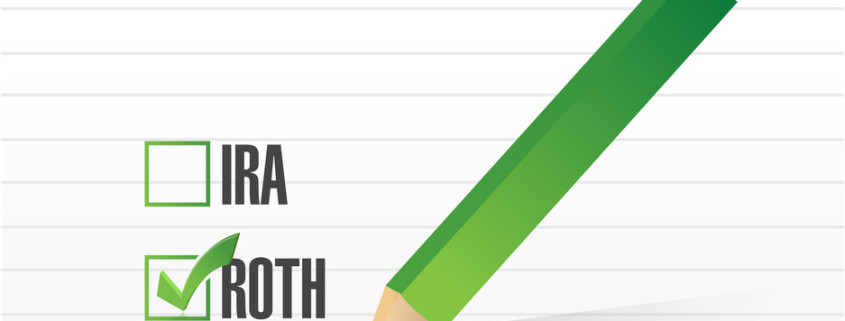The Markets are Declining; Is It Time to Convert to a Roth IRA?
The last few weeks have been pretty dismal for investors. (As of this writing, the Dow Jones Industrial Index is down about 2,000 points from its 2015 highs.) No one likes to see the value of their retirement accounts decline, but long-term investors know that market declines are inevitable. One of the keys to successful long term investing is the ability to use market declines to one’s advantage.
Declining markets present a great opportunity to convert a traditional IRA to a Roth IRA. Once converted, the funds in the Roth grow tax fee, are not subject to minimum distribution rules, and may be withdrawn 100% tax free.
To convert a traditional IRA to a Roth, you must pay income tax on the amount converted. If you were to convert an $80,000 traditional IRA to a Roth, $80,000 would be added to your income for tax purposes. But as markets have fallen recently, so too have IRA account values. A traditional IRA worth $80,000 several weeks ago may only be worth $60,000 today. That would be $20,000 less income subject to tax on the conversion. If your IRA has decreased in value, you can convert the account balance (or a portion) to a Roth and lock in a lower tax bill before the markets turn back upward.
But, the markets may decline even lower and so too, the post-conversion value of the Roth IRA. Or, maybe you completed a Roth conversion earlier in 2015 before the markets began to fall. Fortunately, you have the ability to undo (recharacterize) the Roth conversion, eliminating the tax otherwise due. (If you converted a traditional IRA to a Roth at any time in 2015, you have until October 15, 2016, to recharacterize it and avoid the taxes.) After the recharacterization you can reconvert the IRA to a Roth at the lower account value, paying even less tax than you would have on the original conversion. However, reconversions are extremely complex and require proper timing to avoid running afoul of the complicated tax rules that apply.
In the right situation, market declines can present substantial planning opportunities with IRAs. Remember, the rules governing IRAs are complex, and a Roth IRA conversion or recharacterization done incorrectly can result in disastrous tax consequences.
Your situation is unique. Please do not rely on the information contained in this article as it may not apply to your situation. Before making any move with any type of retirement account, consult your CPA or other tax adviser, or contact me. I can help.



